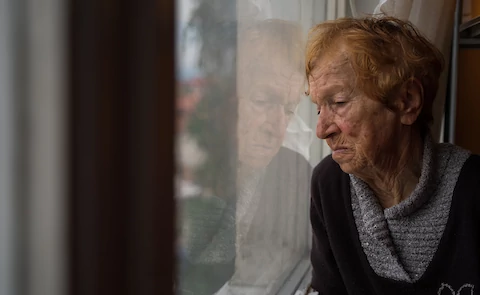
The onset of evening can often bring agitation and confusion to many seniors, a phenomenon commonly referred to as "sundowning." As the day wears on, these individuals may grow increasingly restless, displaying symptoms of anxiety, irritability, and even disorientation. Effectively managing this condition is crucial to enhancing seniors' overall well-being and quality of life.
What Is Sundowning?
Sundowning, also known as sundown syndrome, is a term used to describe a state of increased agitation, confusion, or restlessness that tends to emerge later in the day for some seniors, particularly those diagnosed with Alzheimer's or other forms of dementia. Symptoms can include anxiety, irritability, pacing, and disorientation, typically presenting in the late afternoon or early evening and continuing into the night. This pattern can adversely affect seniors' sleep quality and daily life, making it a significant concern for caregivers and family members.
Causes of Sundowning
Several factors can trigger sundowning, including fatigue, reduced lighting, and an upset in the internal body clock. Recognizing these triggers is the first step to reducing instances of sundowning, leading us to our discussion on practical strategies to manage this condition.
Strategies to Minimize Evening Agitation
With a few strategies, you can minimize the effect of sundowning. Here are a few ideas:
Keep Things Calm
Creating a calming evening routine is one of the most effective ways to reduce the occurrence of sundowning in seniors. Routine provides a sense of safety and predictability, which can help ease anxiety and agitation. Your loved one's routine could include peaceful activities like reading, listening to soft music, or enjoying a warm bath before bedtime.
Environmental Factors
Managing environmental factors is another key aspect of minimizing evening agitation. A tranquil and comfortable environment can soothe distress and promote relaxation. This can involve adjusting the lighting to avoid stark shadows or overly bright lights, maintaining an ambient room temperature, and minimizing noise, especially during the evening hours.
Soothing Activities
Incorporating soothing activities into your loved one's routine can also be hugely beneficial. These activities can range from gentle exercises like stretching or yoga to relaxation techniques such as deep breathing or meditation. Remember, the aim is to create a serene environment and promote relaxation, helping to transition seniors from the day's activities to a peaceful night's sleep.
Tailoring Strategies for In-Home Care Scenarios
Adapting these strategies to in-home care scenarios may require a degree of creativity and flexibility. Each home is unique, and each senior has their own specific needs, preferences, and triggers. The caregiver plays a vital role in implementing these strategies, observing the senior's behavior patterns, and making necessary modifications in the routine or environment.
Senior Helpers Greenfield Helps Seniors Manage Sundowning
Managing evening agitation, or "sundowning," in seniors is pivotal to improving their sleep quality and overall daily life. By understanding what sundowning is and implementing the strategies discussed, caregivers can create an effective, calming evening routine.
For those residing in Greenfield, Indianapolis, or Anderson, seeking professional help to manage sundowning can be highly beneficial. Senior Helpers Greenfield provides expert in-home care, blending innovative solutions with a caring touch to ensure your loved ones experience calm, peaceful evenings. We invite you to reach out to us and discover how we can make a difference in enhancing the quality of your senior loved ones' lives.